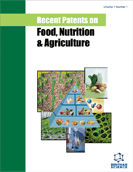Abstract
Background: Meat packaging once acted primarily as an inert barrier to protect its contents against contamination and this function has shifted.
Discussion: Packaging now includes complementary functions that improve product quality, longevity and customer/retail appeal. The devices and methods applied to achieve these functions may be categorised as smart packaging, which includes intelligent packaging, devised to monitor and communicate packaged content status, and active packaging, to provide passive adjustment of inpack conditions from its interactions with the packaged meat.
Conclusion: Smart packaging examples already available from recent patents include antimicrobial and antioxidant packaging coatings and inserts; sensors or indicators that identify spoilage and freshness; functional engineering customisations; improvements to packaging integrity; leak or tamper detectors; and, environmentally sustainable options. Together, these inventions respond to industry and customer demands for meat packaging and are therefore the focus of this review, in which we discuss their applications and limitations in meat packaging.
Keywords: Meat, active and intelligent packaging, functional, consumer appeal, sensors, spoilage, oxidation.
Graphical Abstract
 58
58 11
11 1
1 1
1


















